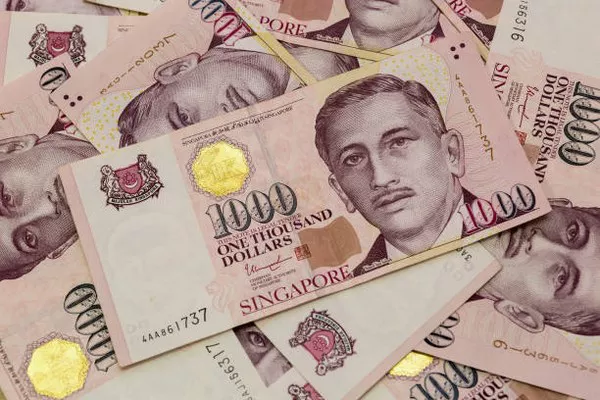Currency plays a pivotal role in international trade, investment, and finance, serving as a medium of exchange and a store of value. The Singapore dollar (SGD), as the official currency of Singapore, holds significance not only within the city-state but also beyond its borders. In this article, we explore the extent to which the Singapore dollar is used worldwide, examining its presence in different countries and its role in the global financial system.
Overview of the Singapore Dollar:
The Singapore dollar (SGD) has been the official currency of Singapore since 1965 when the city-state gained independence.
Managed by the Monetary Authority of Singapore (MAS), the SGD is symbolized by the abbreviation “S$” or “SGD” and is subdivided into 100 cents.
The SGD is widely used for domestic transactions, international trade, investment activities, and as a reserve currency by central banks and financial institutions.
Importance of the Singapore Dollar in Southeast Asia:
As one of the most developed and economically prosperous countries in Southeast Asia, Singapore plays a significant role in the region’s economic landscape.
The Singapore dollar serves as a key currency for trade, investment, and financial transactions among Southeast Asian countries, including Malaysia, Indonesia, Thailand, and the Philippines.
Singapore’s strategic location, well-developed infrastructure, and business-friendly environment contribute to the widespread use of the SGD in regional economic activities.
International Trade and Finance:
Singapore’s status as a global trading hub and financial center facilitates the use of the Singapore dollar in international trade and finance.
The SGD is widely accepted for trade transactions with countries around the world, particularly in Asia, Europe, and North America.
International companies and financial institutions often use the SGD for invoicing, settlement, and hedging purposes, leveraging Singapore’s efficient banking system and capital markets.
Cross-Border Remittances and Payments:
The Singapore dollar is frequently used for cross-border remittances and payments, particularly by overseas workers and expatriates residing in Singapore.
Remittance corridors between Singapore and countries such as India, China, Bangladesh, and the Philippines see significant flows of SGD-based transactions, supporting livelihoods and economic activities in recipient countries.
Role as a Reserve Currency:
Central banks and sovereign wealth funds hold Singapore dollars as part of their foreign exchange reserves, reflecting the currency’s stability, liquidity, and attractiveness as an investment asset.
The Singapore dollar’s inclusion in central bank reserves diversifies currency holdings and provides stability amid fluctuations in other major currencies.
Singapore Dollar in Tourism:
The Singapore dollar is widely used in the tourism sector, as Singapore attracts millions of visitors from around the world each year.
Tourists visiting Singapore often exchange their home currencies for SGD to pay for accommodation, dining, shopping, and entertainment expenses.
Conversely, Singaporean travelers may use the SGD for overseas travel expenses in countries where it is readily accepted or easily exchangeable.
Adoption in Financial Markets:
The Singapore dollar is actively traded in the global foreign exchange (Forex) market, where it is among the top-traded currencies by volume.
Forex traders, institutional investors, and hedge funds engage in SGD-denominated transactions, taking advantage of Singapore’s open and liquid financial markets.
The SGD is also used in derivative markets for options, futures, and other financial instruments, providing opportunities for risk management and investment strategies.
Financial Infrastructure and Support:
Singapore’s well-established financial infrastructure, including banking systems, payment networks, and regulatory frameworks, supports the international use of the Singapore dollar.
Financial institutions in Singapore offer a wide range of SGD-denominated products and services, catering to both domestic and international clients.
The MAS actively promotes the use of the SGD in international transactions and collaborates with global counterparts to enhance cross-border financial connectivity.
See Also: What is the Best Currency to Use in Singapore?
Conclusion:
The Singapore dollar (SGD) plays a multifaceted role in the global economy, serving as a medium of exchange, a unit of account, and a store of value.
Its widespread use in Southeast Asia, international trade, finance, tourism, and investment underscores Singapore’s economic prominence and financial sophistication.
As Singapore continues to strengthen its position as a global financial hub, the international presence of the SGD is expected to grow, further solidifying its status as a key currency in the global financial system.


